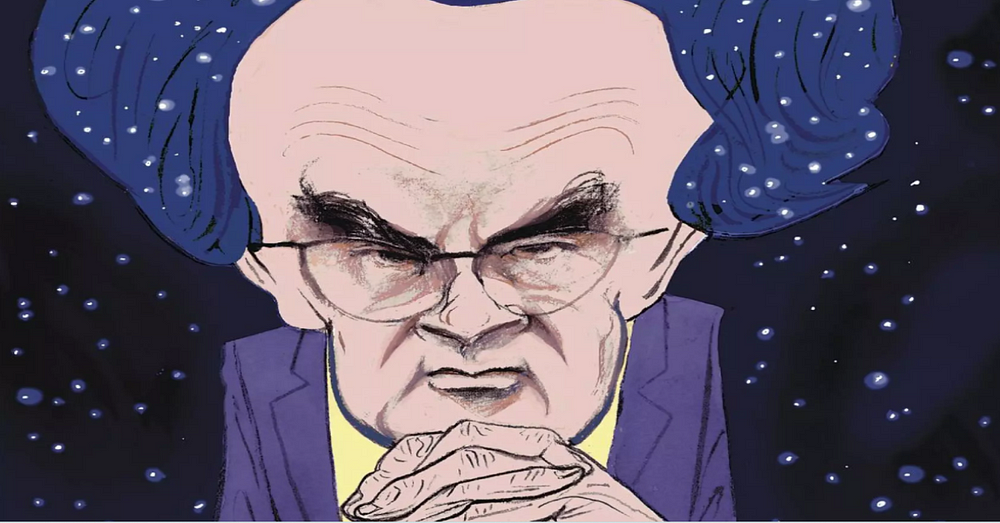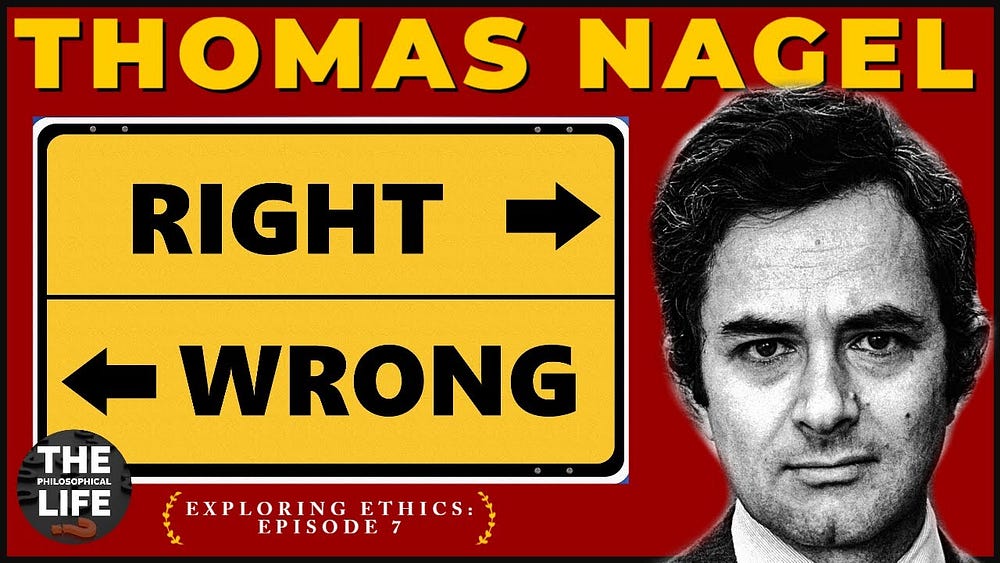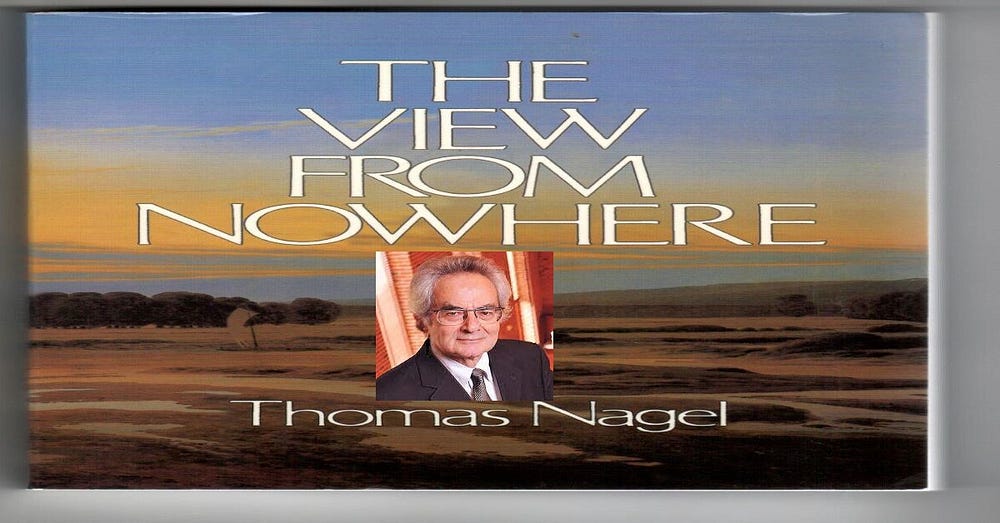
Skip the following square-bracketed introduction (i.e., skip to the words after the starred line below) if you’ve already read my ‘Thomas Nagel as Philosopher-Priest and New Mysterian (Part One)’ and ‘Thomas Nagel on Darwinian Imperialism, Naturalism and Mind (Part Two)’.
[This essay was written quite some time ago. The style is somewhat rhetorical, literary and (as it were) psychologistic. That said, I still agree with much of its philosophical content. However, if I were to write it today, the style would be a little different. Indeed some (probably many) analytic philosophers would regard this essay as one long ad hominem against the American philosopher Thomas Nagel (1937-). Sure; there is an element of the ad hominem in the following. Yet hopefully it will be shown that there’s more to the essay than that.
[In fact I chose to write in a rhetorical and literary style partly in response to the clear and prevalent rhetoric and “psychologising” I found in Thomas Nagel’s own book, The Last Word.
[In addition, the prefix “new” in “new mysterian” is a little dated (i.e., new mysterianism is no longer new) because the term was first coined in 1991 by the American philosopher Owen Flanagan (1949-). (See Flanagan’s The Science of the Mind.) What also needs to be said is that I’m using Flanagan’s word “mysterian” more widely and more literally than he does. That is, in Nagel’s case I’m stressing Nagel’s mysterianism and mysticism across the board. Flanagan, on the other hand, only (really?) had mysterian positions on consciousness in mind. That said, the term “new mysterianism” has also been applied to the wider position that there’s far more than one “hard problem” (i.e., the “hard problem of consciousness”). It also includes the belief that science is intrinsically and fundamentally limited in many respects. This is a self-conscious kind of anti-“scientism”.]
**************************
Thomas Nagel on Bad Philosophy

The American philosopher Thomas Nagel (1937-) has a high opinion of philosophy itself. Or, it should be said, a high opinion of what he calls “post-positivist” philosophy. Indeed that statement should be qualified too by saying that Nagel has a high opinion of a particular kind of philosophy: i.e., metaphysically realist and ethically realist American philosophy. That is, the kind of philosophy Nagel himself practices.
Such philosophy (including Nagel’s own) aims at transcendence because it is “after eternal and nonlocal truth”. Nagel’s kind of philosophy is also opposed to what he calls “the weaker regions of our culture” and the “ambient climate of irrationalism”.
Yet it’s not only the Derridas, Foucaults and Rortys who don’t match up to Nagel’s high standards: “deflationary metaphilosophical theories like positivism and pragmatism” fail too. This includes the late Wittgenstein, Quine, Putnam, Goodman, Sellars, Churchland…Nagel’s negative list is long!
Of course Nagel could never explicitly say that his brand of analytic philosophy should be both the judge and foundation of all other areas of our culture. However, isn’t that precisely what he does believe (if not state)? And Nagel does so because he believes that others aren’t up to the job. That is, other areas of culture are (to use his own words) “weak”, “decadent” and simply don’t have what it takes — intellectually or morally. Nagel also states that this is the case because of the “extreme intellectual laziness of contemporary culture” in which there is a “collapse of serious argument”.
It has to be said here that in certain sense Quine, Putnam, Sellars, etc. were indeed “deflationary” philosophers. However, did they also lack “serious argument”? And the place where I personally have come across a lack of argumentation is when analytic philosophers like Nagel are talking about Continental and even “deflationary” analytic philosophers. Then the gloves are well and truly off. Indeed Nagel’s book The Last Word is hardly the most argumentatively rigorous book on the market. Nagel also likes the odd burst of what he calls “rhetorical flourish” too. It can also be said that Nagel probably hadn’t read much of Derrida, Foucault and other (what Nagel himself called) “continental usual suspects” when he wrote his last words. (He would have read Rorty, Quine, etc.) That said, he probably had read a few of analytic philosophy’s reviews and criticisms of these philosophers.
Thomas Nagel on Good Philosophy

It would be fair to say that philosophy (at least certain kinds or expression of philosophy) for Thomas Nagel is for all intents and purposes an instinct. That would be a rather innocuous and uncontroversial position if it weren’t for the fact that Nagel also has a very precise idea of what — real? — philosophy actually is. Indeed Nagel believes that there are certain givens of philosophical thought which aren’t culturally or historically variable.
All this seems to be Nagel’s platonic or Cartesian attempt to escape from the contingent and the empirical. Or, less rhetorically, it’s Nagel’s attempt to emphasise necessity and essentiality — a necessity and essentiality that’s been given a hard time (at least according to Nagel) since the works of the logical positivists (e.g., Carnap), late Wittgenstein, Quine and, of course, Nagel’s continental usual suspects.
Nagel also stresses the permanencies of certain philosophical problems and the ahistorical nature of basic concepts and reasonings; along with philosophical “transcendence”.
On Nagel’s philosophy of transcendence.
Nagel often uses the word “transcendence” (see definition here) in both The View from Nowhere and The Last Word. It’s Nagel’s notion of “transcendence” which makes it clear what drives him: the desire to escape from human finitude (especially as it’s represented in language). The British philosopher and literary critic Christopher Norris (1947 — ) neatly sums up Nagel’s belief and desire (though he didn’t have Nagel in mind) that
“reason can somehow dispense with language and arrive at a pure self-authenticating truth or method”.
And thus such Nagelian philosophy “strives to efface its textual or written character”.
All the above ties in with Nagel’s belief that (what he calls) thought can in fact transcend language.
Conclusion: Nagel’s “Concepts” and His Good Philosophy

It’s understandable that if “concepts” (as construed by Nagel) can float free from the empirical world (or at least are not dependent on it - whatever that could possibly mean), it could easily follow that philosophical contemplation does too. This is Nagel in his own words:
“[T]he sources of philosophy are preverbal and often precultural, and one of its most difficult tasks is to express unformed but intuitively felt problems in language without losing them.”
Nagel never tells us what these “preverbal and often precultural sources of philosophy” are. He doesn’t’ say what he means by “thoughts” or give us any examples. Or at least he certainly doesn’t do so in his book The Last Word — which is where most of these quotes come from. It doesn’t help either that he doesn’t expand on enigmatic statements such as
“the content of some thoughts transcend every form they can take in the human mind”.
What Nagel appears to be saying (in the above), then, is that we must make a distinction between the necessary and the contingent. Clearly the words and languages we use to express “the sources of philosophy” are contingent. Yet, to Nagel, these very sources appear to be necessary (almost in a quasi-Kantian sense). In other words, Nagel seems to be claiming that all human beings (as human beings) necessarily have a stock of (to use his own words) “intuitively felt problems”. It can also be deduced from this that Nagel believes that these problems are in no way caused by our conceptual/linguistic and historical heritage — or even by our biology and evolution. Language, therefore, is simply the bodysuit that clothes a stock of thoughts which always remains unchanged.
So Nagel believes that these (or his) “concepts” — these “sources of philosophy” — are what are objective. And if they can be tapped into, expressed or seen (in the language-free platonic sense), then objective truth is possible. In other words, Nagel doesn’t want mere “warranted assertibility”, or instrumental or pragmatic truth. He wants a capitalised Truth which outruns all kinds of justification, consensus and even language itself.












No comments:
Post a Comment